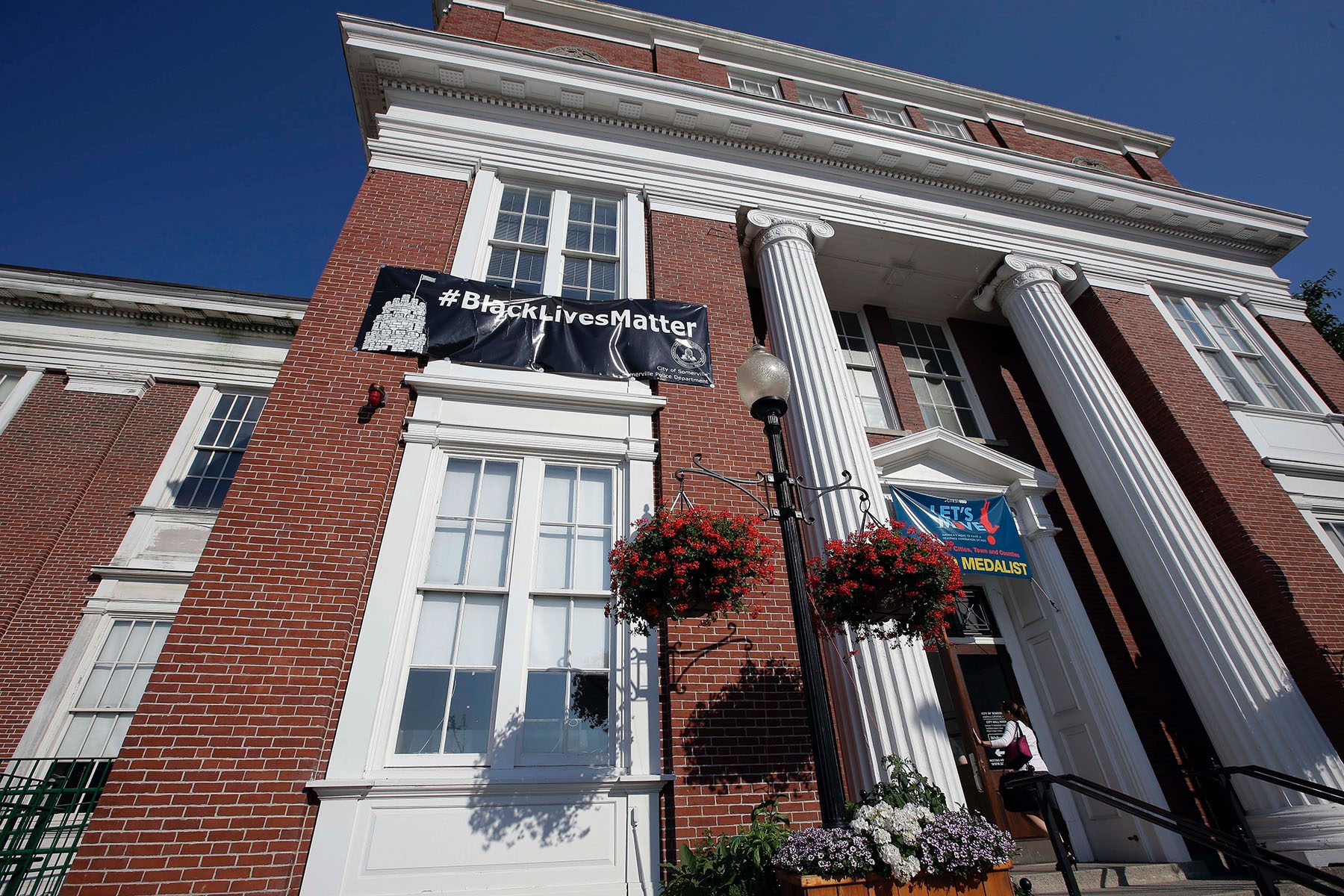Your trusted source for contextualizing the news. Sign up for our daily newsletter.
Somerville, Massachusetts, has become the first city in the United States to extend legal protections against discrimination to people in polyamorous relationships and other nontraditional family structures.
Last month, the city council passed the first three ordinances defining “family or relationship structure” as a protected class, akin to race, gender or sexual orientation. The ordinances also extended specific anti-discrimination protections in police interactions and employment. A fourth ordinance is currently under consideration to bar housing discrimination.
An estimated 4 to 5 percent of Americans are polyamorous, and 21 percent reported engaging in some form of consensual non-monogamy at some point in their lives, according to a 2016 study in the Journal of Sex & Marital Therapy.
This number includes Willie Burnley Jr., Somerville’s city councilor at-large.
“These ordinances are a step towards us having a society that fully embraces people of diverse relationship structures. People shouldn’t be punished because of who they love or how many people they love, as long as they’re all consenting adults. We should be celebrating the kind of care and community that builds,” Burnley told The 19th.
This is not the first legislation Somerville has passed recognizing non-traditional family structures. In 2020, the city expanded rights normally reserved for married couples, like hospital visitation, to relationships involving more than two adults.
-
More from The 19th
- One of the leading coalitions that pushed for the Equality Act has quietly disbanded
- Florida bill would bring bans on gender studies and critical race theory to colleges and universities
- Exclusive: Democrats reintroduce federal Trans Bill of Rights as GOP tries to advance restrictions
Cambridge, Massachusetts, and Berkeley and Oakland in California are currently considering similar ordinances to expand and protect the rights of polyamorous and nontraditional families. But Somerville — which sits northwest of Boston with a population of more than 80,000 — was the first municipality in the United States to pass the legislation.
Andy Izenson is senior legal director at the Chosen Family Law Center, which advocates on behalf of non-traditional families and provides direct legal support, and helped craft the text of the ordinances. They say that the changes are needed.
“In the law and in our society, there’s a singular definition of family that’s embedded in everything, in how our society and legal system work. That impacted families who don’t look like that. The legal and cultural understanding of what a family is — heterosexual, cisgender married parents living with a child or children that are genetically related to them, and no one else — less than half of American kids live in a family that looks like that,” Izenson said.
They drew a distinction between “animus,” the legal term for overt discrimination, and less overt forms of discrimination.
“We’re also looking at discriminatory impact — simply living in a world not set up for you. That’s damaging to individuals, to families, to children,” they said.
According to Izenson, the legal issue that arises most often for polyamorous families involves child custody. Judges will sometimes determine that individuals are unfit parents or should have less contact with their children during divorce proceedings, by virtue of the types of relationships they engage in.
“A lot of my work is in family courts and divorce, in particular with clients who live in nontraditional family structures. Whether that’s polyamory, which is sort of the most glamorous and well-publicized, but also other family structures that do not resemble that of a married, heterosexual monogamous couple,” Izenson said. “That includes families where parents are taking care of grandchildren or queer families who are co-parenting in a way that is creative and beautiful, but is not supported by law. That includes families like mine, which are networks of queer kinship that are fully and open-heartedly committed to mutual care and building lives together, but are not able to access legal protections.”
The ordinances in Somerville do not address child custody directly, but advocates hope to tackle the issue in future legislative efforts. Because of stigma and fear of legal repercussions from child protective services, The 19th was not able to locate polyamorous parents willing to speak on the record about their experiences.
“There’s a deep concern within the community about children being taken away from families if disputes arise or if they are in contact with law enforcement. There’s this idea that their family structures are immoral or unhealthy. Our legal system and our cultural consciousness has omitted the fact that non-monogamy is a real and vibrant part of our communities,” Burnley said.
Heron Greenesmith, cofounder of the Polyamory Legal Advocacy Coalition, said it is unlikely that there will be state or federal legislation protecting the rights of polyamorous families for some time, because of the current political environment in the United States. The rights of LGBTQ+ Americans are under attack in many states, so it’s hard to focus on expanding protections.
“It’s all defensive right now on the state and federal level,” Greenesmith said.
Izenson remained optimistic and stressed the importance of work beyond the law.
“Legislative advocacy and changes in black-letter law always have to be one arm of a comprehensive and diverse toolbox for the liberation of the marginalized,” they said. “I’m excited that the law is changing. I’m excited to see how the law changes further. And also, I want to be realistic about the limits of the law. It’s never going to stop being important for queer families to take care of each other on a material level.”
Burnley also sees the ordinances as a step towards not only legal change, but cultural change as well.
“I think this is the first salvo in a larger cultural movement towards freedom for families. It’s funny that right-wing types try to monopolize being pro-family,” Burnley said. “But ordinances like this are about being able to form a family in whatever ethical ways people choose. We will be seeing more drastic changes as we come together as communities.”






